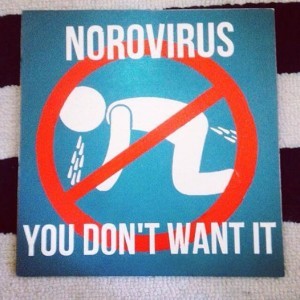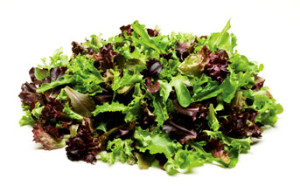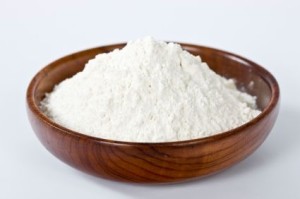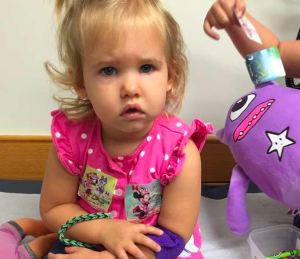One of my close friends owns a restaurant and texts me regularly with questions about stuff that’s going on (like O121 in flour).
He’s the kind of business owner I like: he shares what he sees as deficiencies and we chat about ideas to get his folks to keep his product safe. He’s worried about his livelihood daily. He’s not complacent.
Later this month, while the restaurant is closed, I’ll talk to his employees and tell them stories from barfblog – about the people who got sick and the people that led to the illnesses.
I’ll paraphrase him here, but he’s said lots of times that while he doesn’t think he’s been the source of any illnesses, it could happen tomorrow. And he’d lose his business.
That’s the kind of realism that makes me want to eat at his restaurant.
Sorta the opposite of what’s happening at Spice Modern Steakhouse in Orlando, according to WFTV.
Ben Elliott and Alyssa Mason planned a perfect wedding. Then came the rehearsal dinner at Spice Modern Steakhouse. Within hours, 38 people in the wedding group, and two others, became sick and some described violent food-poisoning symptoms to Florida Health Department investigators.
The couple’s parents said three people went to the hospital.
Documents Action 9 checked and revealed big problems inside the kitchen before and after the food poisoning. The restaurant flunked a routine state inspection just three days before the event. Critical violations included potentially hazardous food temperatures.
Investigators listed spoiled lettuce with slime, moldy strawberries and black algae in a sink. Plus they listed hand wash failures, some employees worked while sick and with poor training. Murphy said those last three issues have been linked to food poisoning outbreaks by the Centers for Disease Control and Prevention.
Restaurant owner Manny Tato told Action 9, in nine years, the restaurant served thousands of customers without incident. Tato said he fully expects state investigators to clear his restaurant of any wrongdoing. He also told Action 9 since the complaint, management has changed at the restaurant and all inspection problems have been corrected. Tato said he has hired an outside company to audit food safety issues on a regular basis.
Statement from Manny Tato / Spice Modern Steakhouse:
Contrary to what you have been told, I personally have been involved with communicating with the gentleman who started the complaint (leaving out his name to respect his privacy) since shortly after his first call to the restaurant. I think his phone records could prove this if requested. During my very first conversation with this gentleman, he himself mentioned that I should have insurance to take care of his expenses thus far—as his expenses were substantial—unless I wanted to settle personally. Since we have been fortunate enough not to ever have had any such claim or complaint from a guest in over 9 years at this location, serving thousands of guests weekly, I called our insurance agent. Under our agent’s advice we agreed and our insurance company was notified.
Once I was given the insurance adjuster’s contact information, I passed it along to the gentleman. A few phone calls were exchanged between the adjuster, the gentleman, and me. While being sympathetic to his claim, he was asked a couple of times to provide supporting documentation from doctors, other healthcare professionals, etcetera. He was also asked to pass along the adjuster’s information to all parties allegedly involved so they could discuss this. As of yesterday afternoon, the adjuster has not received any documents or heard from any other parties to the alleged incident. I suppose you could argue the reason for not providing these documents is probably a legal strategy—which shouldn’t even be a thought at this point since the insurance company is willing to resolve this—provided there is supporting evidence. Or it could be that there are no such documents to provide from a physician to support the claim.
While I acknowledge the health department inspection seems lengthy, primarily due to “basic” items they had to note after performing a 6 hours inspection with 3 inspectors present, none of the listed items noted posed a threat to the public according to the inspection reports themselves. The restaurant remains in operation and corrective measures were taken right away. We have been proactive on our end by implementing new guidelines compliant with new health department codes (which change frequently). New management is in place, some aged equipment has been replaced, and we have engaged a third party company to perform regular safety and food handling audits.
We are not a big chain restaurant. We love our guests, staff, and our city. The last thing we want to do is hurt anyone, especially our faithful regular guests we’ve learned to call our friends.
I understand stories need to air or ratings will decrease due to lower viewing audiences. Even so, to prove a point, one may say there have been inspections with quite a few items listed (none that pose a threat, mind you), but I would stand on the mere fact that there has been no proof of any wrong doing on our part. To that end, do we say “guilty until proven innocent” or “innocent until proven guilty”? I think the latter is appropriate based simply on the fact that in all of our years in business, we have never had an incident or claim.
Yeah, we’ve been doing the same things for years and have never made anyone sick. Heard it. Lots of times. Pretty hard to say when inspectors report a bunch of risk factors (hand washing, working while ill) three days before a 30+ illnesses are linked to the business.











